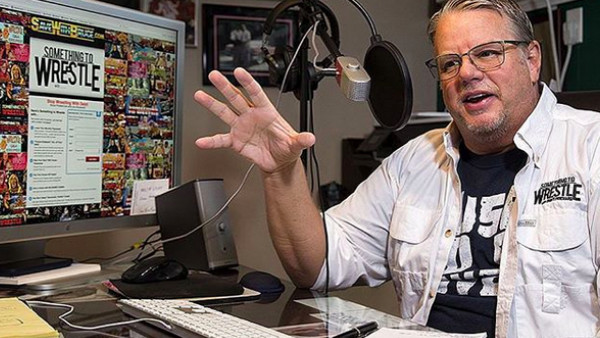Is Dave Meltzer Biased Against WWE?

The rise in popularity of one Bruce Prichard has mobilised the WWE foot soldiers. Prichard pretends to hate Meltzer for his slant on pro wrestling, infuriated that the man savours spots over selling and storytelling. This is a take you need only look at the last *****+-rated match to not take seriously.
Kazuchika Okada Vs. Hiroshi Tanahashi, at NJPW Wrestling Dontaku, benefitted from six years of dramatic heft. Over the span of those six years, Okada was elevated to Ace status. He supplanted former Ace Tanahashi in doing so. There was zero character inconsistency in the interim; Okada’s legend grew as Tanahashi grew into the role of legendary old lion. At the astonishing conclusion of this epic rivalry, as the supposedly mute New Japan fans went apesh*t, Tanahashi attempted to slap the disrespect out of the cocky young punk in his last stand. It didn’t work, because Okada was no longer the cocky young punk. He was the Ace. This was mathematically formulated to break records and emotionally calibrated to break hearts. This was pathos. This was storytelling. This was psychology. This was, in Meltzer’s opinion, the best match of the year so far.
But then, those who loathe Meltzer are hardly going to have watched it. And therein lies the inherent absurdity, irony and hypocrisy of the meme.
For an example closer to home, consider the last WWE match Meltzer rated *****. Tommaso Ciampa Vs. Johnny Gargano was essentially booked the second both men walked into Orlando. Built for years, the glorious denouement was elevated by its rich history. Fans actively booed a heel irrespective of their respect for that heel. That is the luxury afforded to NXT and its minimalist approach to televised content.
Consider also the main roster WWE landscape between 2012 and 2018 in parallel to New Japan's Golden Age. Rising headline acts CM Punk and Daniel Bryan were stigmatised as B+ players to widespread chagrin. The former frequently veered between heel and babyface. His spiritual Internet darling successors saw their pushes stall, and recommence, and stall again. Consider Finn Bálor. Consider Shinsuke Nakamura. Kevin Owens. Seth Rollins. Dean Ambrose. The WWE Universe isn’t shared; it is shattered, and the prospect of fully investing in the action is appropriately exhausting. WWE presents excellent matches, often routinely. But true greatness eludes the main roster as a result of its incoherence and systemic cookie cutter approach. With such reckless disregard to identity and continuity, it’s little wonder that WWE matches do not register to the same legendary effect.
This doesn’t account for Meltzer’s love of Pro Wrestling Guerrilla - but then, PWG is everything WWE isn’t: a humble, passionate operation that prioritises creative license over regimented homogenisation.
Is Meltzer biased against WWE? Or is the WWE system designed to inhibit the in-ring action from reaching its full potential?
CONT'D...